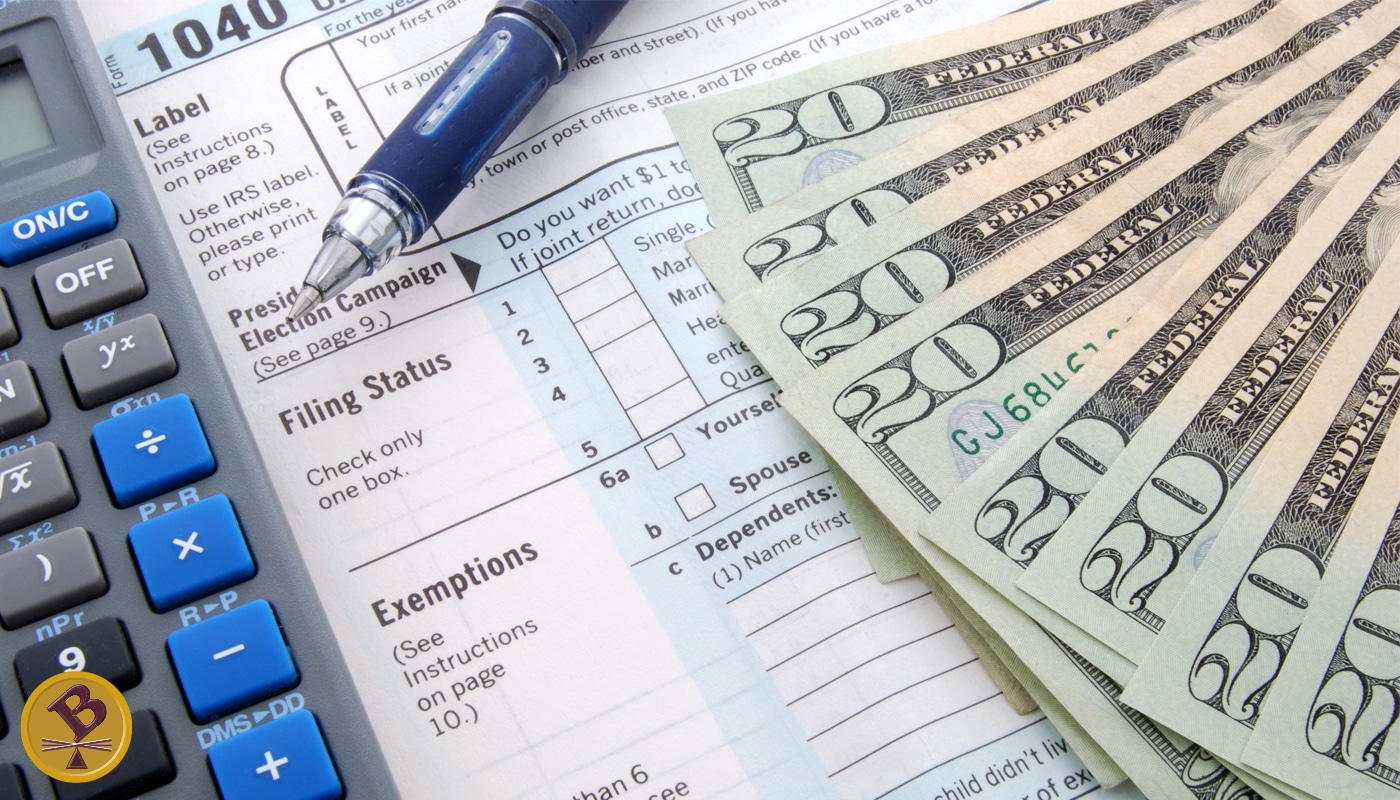If you are wondering whether you need to make estimated tax payments, chances are you should, but this article will help you figure out if you need to – if you are unsure.
We will cover who needs to pay estimated quarterly tax payments, how much you need to pay – if you need to estimate, and how much you need to pay – if you have your estimated figures for your taxable income, AGI (adjusted gross income), taxes, tax credits, and deductions.
We will also look at the normal tax deadlines for estimated tax payments and what they have changed to. Due to the COVID-19 pandemic, the deadline for the first estimated tax payment has been extended to July 15, 2020. It normally falls on April 15, but it’s now extended until July 15, 2020. So, if you haven’t begun making payments yet, there is still time.
If you are unsure of the different ways you can make estimated quarterly tax payments or how to pay your total tax liability, we will cover that, too. When you file your federal tax return, you will be ready and won’t have to worry about receiving an unexpected tax bill.
Who needs to pay estimated quarterly tax payments?
So, the first thing you need to figure is if you are even required to pay estimated quarterly tax payments. Typically, any income that is not subject to federal income tax during the year needs to be reported and paid regularly to the IRS. If your employer withholds federal taxes during the year, most likely, you will NOT need to pay estimated taxes.
Some examples of income that will likely need to be reported and paid on during the year include, but is not limited to:
- Self-employment earnings
- Side hustle earnings
- Interest
- Dividends
- Prizes
- Alimony
- Unemployment compensation
- Capital gains
According to the IRS (IRS Form 1040-ES), estimated tax rules apply to:
- United States citizens and resident aliens;
- Residents of Puerto Rico, the United States Virgin Islands, Guam, the Commonwealth of Northern Mariana Islands, and American Samoa; and
- Nonresident aliens (Use IRS Form 1040-ES NR).
What are the deadlines for paying quarterly estimated taxes?
As mentioned above, due to the COVID-19 pandemic, the deadlines for paying quarterly estimated taxes have been changed. Here, we will go over those changes in deadlines.
The deadlines for the estimated quarterly payments were as follows:
Payment | Date |
|---|---|
First Estimated Tax Payment Due: | April 15, 2020 |
Second Estimated Tax Payment Due: | June 15, 2020 |
Third Estimated Tax Payment Due: | September 15, 2020 |
Fourth Estimated Tax Payments Due: | January 15, 2021 |
The new deadlines for the estimated quarterly payments are as follows (due to the COVID-19 pandemic):
Payment | Date |
|---|---|
First Estimated Tax Payment Due: | July 15, 2020 |
Second Estimated Tax Payment Due: | July 15, 2020 |
Third Estimated Tax Payment Due: | September 15, 2020 |
Fourth Estimated Tax Payments Due: | January 15, 2021 |
Do I need to make quarterly estimated tax payments?
According to Bankrate, if you expect to owe over $1,000 in taxes after you subtract your withholding and refundable credits for the year, you must pay estimated taxes. There are special rules that apply to farmers and fishermen. The provisions can be found on the IRS’s website here.
How much do I need to pay in estimated quarterly tax payments?
Use IRS Form 1040-ES to determine the amount of taxes you need to pay. The form will help you determine the amount of estimated payments you need to make, and it has the vouchers you need to use when sending in your check or money order (or just for your records).
Don’t worry about overpaying either. It’s better to overpay than it is to underpay. If it turns out that you overpay come tax time, you will receive a refund check either by mail or via direct deposit into your checking/savings account. Provided you overpay, you won’t have to worry about incurring any interest or penalties.
To calculate your estimated taxes for the current year, you will need to estimate your AGI (adjusted gross income), taxable income, taxes, deductions, and credits. You may want to use last year’s tax return as a starting point if you don’t know where to begin.
IRS Form 1040-ES can help you with these estimations; again, you will want to estimate your tax amount as closely as possible to avoid interest and underpayment penalties.
What if I don’t know how much I need to pay in estimated taxes?
If you are unsure as to the amount of estimated tax you need to pay, the IRS can help with the following guidance.
To make sure you don’t have to pay an estimated tax penalty or receive an unexpected tax bill, the IRS has safe harbor guidelines.
The guidelines help you avoid interest and underpayment penalties. If you are unsure as to how much to pay:
- You can pay 90% of the tax bill you will owe in 2020; or
- You can pay 100% of the tax owed on last year’s tax bill
If you earn over $150,000 per year, you are considered to be a high earner and should pay at least 110% of last year’s tax bill. This will help protect you from owing interest and/or penalties.
If you believe you will be paying a considerately lower tax bill than you did the year before, you may want to meet with a tax accountant to determine what your projected income tax will be for the current year. Meet with a qualified tax consultant to help you with these calculations. In fact, you can get in touch with a pro easily using this form.
What are the different ways that I can make my estimated tax payments to the IRS?
The IRS gives you many ways that you can make your estimated quarterly tax payments. On the Paying Your Taxes page of the IRS’s website, you will find many options, including:
- Direct Pay (from your bank account)
- Debit Card/Credit Card
- EFT Payment System (Electronic Federal Tax Payment System)
- Electronic Funds Withdrawal
- Same-day Wire
- Check or Money Order
- Cash
Are you worried about making payments due to the COVID-19 pandemic? Having trouble paying right now due to financial circumstances? The IRS understands that we all have financial hardships we have to endure, so they offer the following options:
- Payment Plans (including an installment agreement)
- Offer in Compromise (a way to settle your tax debt for less than the full amount)
- Request for Temporary Delay in Collection Efforts (until your financial situation improves)
There are other ways the IRS will accept payment from you; if you are able to convey to them that you cannot pay at this time, they are happy to work with you in paying your tax bill.
To Sum Things Up…
If you do not have tax withheld from your paycheck from your employer, you should expect to owe tax throughout the year. Please see the examples above for more specifics of who needs to pay estimated quarterly taxes and who does not.
To avoid interest and penalties, it’s important that you pay your estimated tax payments on time (see the updated deadlines listed in this article).
In general, you will want to pay estimated quarterly taxes if you expect to owe over $1,000 in taxes. There are safe haven rules provided by the IRS that can help you if you are unsure of the amount you need to pay. Otherwise, the amount will be based on estimations.
You will need to have your AGI (adjusted gross income), plus an estimate of what your deductions, credits, and taxable income will be for you to determine the amount of taxes you will need to pay. IRS Form 1040-ES can help walk you through the process, and for further clarification, you should refer to IRS Publication 505: Tax Withholding and Estimated Tax.
If you need help in determining these numbers and paying your quarterly estimated taxes, please seek the assistance of a tax professional! We can help with anything from preparing your tax return to helping you navigate the uncertain waters of an audit.
Are you expecting to be audited? If you are worried about an upcoming audit or the thought of experiencing one, we can help! You can trust Indiana’s tax expert to guide you along the way – from filing your taxes to representing you during an audit, and everything in between! Just contact us today for a free tax consultation, and we will gladly assist you!
The Quiz – Test You Knowlege
See what you learned or what you still may have questions about and take the quiz.





